Application for development cooperation projects
The application phase is closed, the nine RIEs that are funded can be found here.
On this page, you can find information on how German development cooperation organisations were able to participate in the RIE funding programme. BMZ-funded projects were eligible for RIE implementation. Therefore, organisations of German development cooperations (governmental implementing organisations, church and civil society organisations, and foundations that implement development cooperation interventions and are based in Germany) could participate.
Why should development cooperation projects conduct an RIE?
RIEs can...
... demonstrate that projects have a demonstrable impact.
... find out which measures are most effective.
... plan how projects can be implemented even more effectively in the future.
... decide which projects should be continued and scaled up.
There were two ways development organisations could participate in the funding programme:
- They could directly submit a project description (see below) of their development cooperation project until 21 August 2022. Based on this project description, a match-making process with scientists was carried out. Interested scientists developed a suitable evaluation design together with the development cooperation project until 30 November 2022.
- They were able to independently match with a scientific institution and jointly submit a funding application (more information on the funding application can be found here). The deadline for submitting final funding applications was 30 November 2022.
Application documents
The deadline for submission of the project descriptions was 21 August 2022.
How could development cooperation organisations decide if their project is eligible for an RIE?
DEval provided information on how project managers can decide independently whether their project is suitable for conducting an RIE.
Here you will find a checklist assessing whether a project can be evaluated through an RIE.
The DEval RIE team also advised project managers and invited them to a capacity building workshop held in early August 2022. This workshop also provided opportunities for individual consultations for the project leaders where RIE experts discussed and assessed the feasibility of an RIE of their projects.
What happened to the submitted project descriptions?
The submitted project descriptions formed the basis for the RIE funding programme and were published here: Overview of development cooperation projects eligible for RIE.
DEval reviewed the project descriptions before they were published and contacted the project managers if any information relevant to the evaluation was missing.
What happened next?
Following a matchmaking process, the scientific institutions contacted those responsible for the development cooperation projects. They clarified any open questions and established whether cooperating within an RIE research project would be promising for both sides.
The scientific institutions were then able to apply for funding under the RIE funding programme with a letter of support from the respective development cooperation project.

